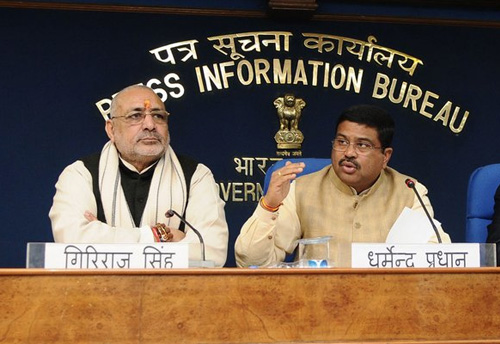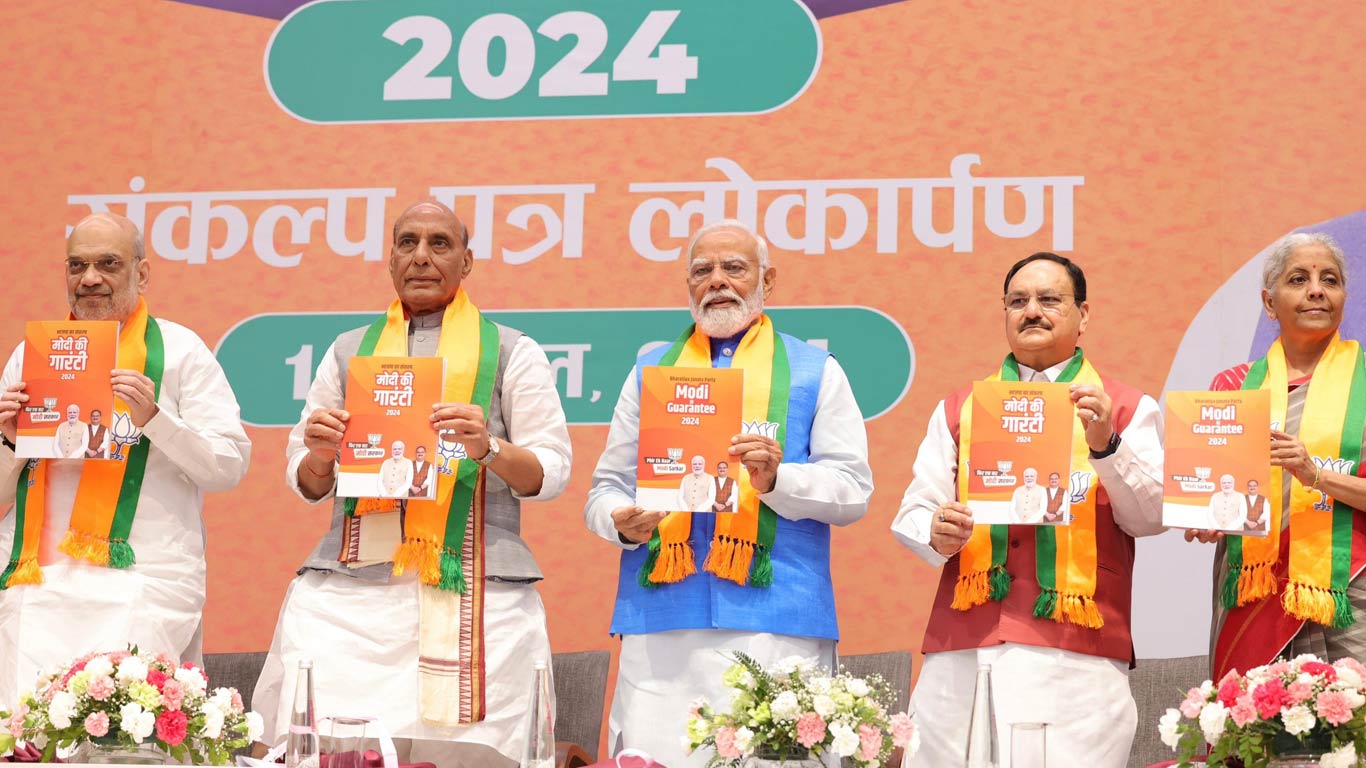Cabinet’s decision to change criteria for MSME classification will end inspector raj: Giriraj Singh
Updated: Feb 08, 2018 10:51:32am

Cabinet’s decision to change criteria for MSME classification will end inspector raj: Giriraj Singh
New Delhi, Feb 8 (KNN) The micro, small and medium enterprises (MSME) sector has been rescued from the inspector raj, said MSME Minister Giriraj Singh reacting to the Cabinet’s decision to change the criteria for classification of MSMEs to annual turnover.
The Minister added that the change in classification will improve the ease of doing business and bring erstwhile MSMEs in the formal sector.
The Union Cabinet chaired by PM Modi on Wednesday approved change in the basis of classifying Micro, Small and Medium enterprises from ‘investment in plant & machinery/equipment’ to ‘annual turnover’.
He said, this will not only motivate the entrepreneurs in the country but would also woo investors from other countries.
The long standing demand of the MSMEs and associations to extend the time limit to declare them NPAs has been extended from 90 days to 180 days, he said.
Singh said when MSMEs will be stress-free and work in improved ease of doing business environment, this will definitely boost the sector and generate jobs.
“The companies with Rs 250 crore turnover, who are registered under GST, will get 5% rebate in income tax.. This will give two benefits to the MSMEs—informal MSMEs will come into formal sector now and will get tax benefit,” the MSME Minister said.
This move is expected to increase ease of doing business, make the norms of classification growth oriented and align them to the new tax regime revolving around GST (Goods & Services Tax).
Section 7 of the Micro, Small and Medium Enterprises Development (MSMED) Act, 2006 will accordingly be amended to define units producing goods and rendering services in terms of annual turnover as follows:
* A micro enterprise will be defined as a unit where the annual turnover does not exceed five crore rupees;
* A small enterprise will be defined as a unit where the annual turnover is more than five crore rupees but does not exceed Rs 75 crore;
* A medium enterprise will be defined as a unit where the annual turnover is more than seventy five crore rupees but does not exceed Rs 250 crore.
* Additionally, the Central Government may, by notification, vary turnover limits, which shall not exceed thrice the limits specified in Section 7 of the MSMED Act.
At present the MSMED Act (Section 7) classifies the Micro, Small and Medium Enterprises (MSMEs) on the basis of investment in plant and machinery for manufacturing units, and investment in equipment for service enterprises. The criterion of investment in plant and machinery stipulates self declaration which in turn entails verification if deemed necessary and leads to transaction costs.
Reacting to this, Debashis Bandhopadhyay, Policy Director, FISME, said, “The initiative of the Government to define MSMEs in terms of turnover is a decision not a day too early. This will bring dynamics in the sector and will provide impetus to natural growth. This will also support setting up of new MSMEs with modern technologies which so far were beyond the definition of MSME due to the archaic historic cost based definition.”
On Wednesday, RBI said, “As a measure to support their transition to a formalised business environment, it has been decided that for the GST-registered Micro, Small and Medium Enterprises (MSMEs) which were standard as on August 31, 2017 and for which the aggregate exposure of banks and NBFCs does not exceed Rs 250 million as on January 31, 2018, the amounts overdue as on September 1, 2017 and payments due between September 1, 2017 and January 31, 2018, be allowed by banks and NBFCs to be paid not later than 180 days from their original due date, without a downgrade in asset classification.”
On this, Bandhopadhyay said, “RBI’s he RBI notification is also an welcome step. It de facto, removes the much dreaded SMA classification of MSMEs which stifled operation of an unit after a loan default of even one month. The SMA classification created more NPA accounts in MSMEs as instead of nurturing the nascent sickness, Banks simply blocked the accounts of the SMAs. However, the RBI notification provide too many ifs and buts which will only assist the risk averse Bankers to not provide any relief to the enterprises facing cash flow problems.” (KNN Bureau)











